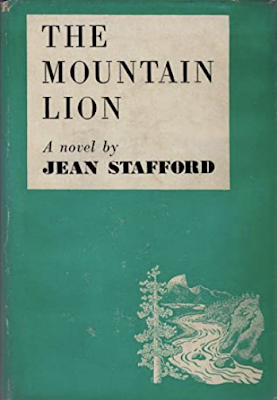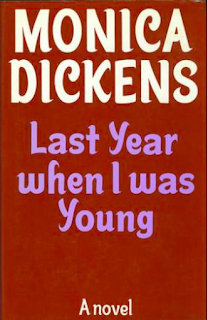Everyone knows that stories are imaginary. Whatever effect they might have on us, we know they are not true, even when they tell us truths more important than the ones we can find elsewhere. ("The Locked Room")
More than ten years ago I received a big box of 24 Penguin Deluxe Classics as a prize from the publisher. As of this year I still had four still unread so I added The New York Trilogy to my TBR Pile Challenge list. I brought it with me, appropriately, to a recent trip to New York, but this book was not what I expected at all. This is an odd book, and I don't even know if I can describe it accurately.
It's a collection of three novellas, originally published in 1985 and 19867. Each of the protagonists is either a private investigator, or someone who becomes caught up in an investigation. Ostensibly they are all detective novels, but they're hardly the mystery/detective fiction of Raymond Chandler or Dashiell Hammett.They all begin as traditional detective novels, but it quickly becomes apparent that they're all much more than that, as the narrators begin to question what they're doing and the nature of their existence within the investigations.
In the first novella, "City of Glass" a mystery writer named Quinn who is between projects gets a series of mysterious phone calls for a "Paul Auster," asking for help. Out of boredom and curiosity, he decides to impersonate Auster and ends up taking on a case and descends into a Kafka-esque spiral.
The second novella is titled "Ghosts," in which a private investigator named Blue is hired by the mysterious White to follow a man named Black and monitor him 24 hours a day. Eventually he starts to wonder who is observing who and what it all means. (All the characters are named after colors, shades of Reservoir Dogs.)
The final novella of the trilogy, "The Locked Room" is the story of a nameless young writer contacted by the beautiful wife of his childhood friend Fanshawe, who seems to have disappeared, leaving behind boxes crammed with his writings. She asks the narrator to fulfill her missing husband's request to try and get his writing published and he becomes obsessed with finding out what happened to his old friend while becoming more involved with the wife.
I really liked these novellas but they were so much more than I expected. Instead of the hard-boiled detectives of the mid-century, the protagonists all begin to question their own existence and sometimes their own reality. They're all actually interconnected and it took me quite a while to figure out how they were related, other than being set in New York. (I had put the book down for a couple of weeks before the first and second novellas so that definitely made it harder.)
They're also quite different from writing style of the traditional detective novel. There are so many insightful and beautiful quotes adding little sticky notes so I wouldn't forget them. Some favorites:
New York was the nowhere he had built around himself, and he realized he had no intention of ever leaving it again. (City of Glass)
For the first time in his experience of writing reports, he discovers that words do not necessarily work, that it is possible for them to obscure the things they are trying to say. (Ghosts)
He feels like a man who has been condemned to sit in a room and go on reading a book for the rest of his life. This is strange enough -- to be only half alive at best, seeing the world only through words, living only through the lives of others. But if the book were an interesting one, perhaps it wouldn't be so bad. He could get caught up in the story, so to speak, and little by little begin to forget himself. But this book offers him nothing. There is no story, no plot, no action -- nothing but a man sitting alone in a room and writing a book. (Ghosts)
Stories happen only to those who are able to tell them, someone once said. In the same way, perhaps, experiences present themselves only to those who are able to have them. (The Locked Room)
A man does not spend his time hiding from the world without making sure to cover his tracks. (The Locked Room)
We all want to be told stories, and we listen to them in the same way we did when we were young. We imagine the real story inside the words, and to do this we substitute ourselves for the person in the story, pretending that we can understand him because we understand ourselves. This is a deception. We exist for ourselves, perhaps, and at times we even have a glimmer of who we are, but in the end we can never be sure, and as our lives go on, we become more and more opaque to ourselves, more and more aware of our own incoherence. No one can cross the boundary into another -- for the simple reason that no one can gain access to himself. (The Locked Room)
That's a lot of quotes but they're all so good that I couldn't cut a single one. I'm not a huge fan of post-modern or meta-fiction but I can't stop thinking about this book. It did have some sexist tropes that I could have done without but I understand why Penguin added it to their Classics list, despite being published in the 1980s. If I had a mystery book group I would absolutely recommend this because there is a LOT in here to discuss. I'm not even sure I understand the ending.
This is my third book for the TBR Pile Challenge and I'm really glad that it inspired me to finally read this novel.










